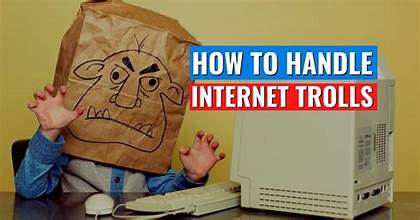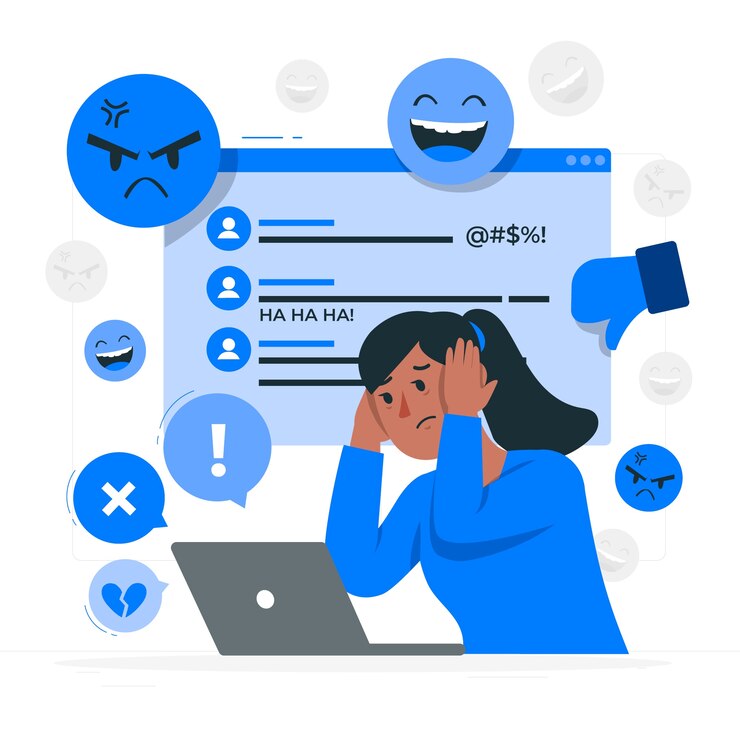The internet has given everyone a voice—but unfortunately, not all voices use that power responsibly. Enter the trolls: users who post inflammatory, off-topic, or offensive content online with the intent to provoke, annoy, or harass others. From sarcastic comments to full-blown online abuse, trolls have become a persistent challenge in digital spaces.
Whether you’re a casual user, content creator, or community moderator, learning how to deal with trolls is essential for maintaining a safe and civil online environment. This guide explores who trolls are, why they do what they do, and—most importantly—how to deal with them without losing your cool.
Who Are Trolls, Really?
Trolls come in many forms. Some are bored individuals looking for attention or amusement. Others are more malicious, engaging in bullying, hate speech, or targeted harassment. There are also “concern trolls” who pretend to support you while subtly undermining or criticizing. What they all have in common is this: they thrive on emotional reactions.

Trolling isn’t always easy to spot, especially when it’s disguised as a joke or cloaked in sarcasm. But when someone’s sole purpose is to provoke or derail meaningful conversation, it’s safe to say you’ve encountered a troll.
Why Do People Troll?
Understanding a troll’s motivation can help take the sting out of their words. Here are a few common reasons people troll:
- Anonymity: Hidden behind screen names, people feel emboldened to say things they wouldn’t say in person.
- Attention-Seeking: Trolls crave reactions—especially anger or outrage. It gives them a sense of power.
- Boredom: Some trolls have nothing better to do than stir up chaos for entertainment.
- Insecurity or Frustration: Lashing out online can be a way for some to project their own dissatisfaction.
- Ideological Extremism: In some cases, trolls use harassment as a tool to silence opposing viewpoints.
Regardless of the reason, responding in the wrong way often fuels the behavior. So, what should you do instead
The Golden Rule: Don’t Feed the Trolls
The most important advice: ignore them. Trolls feed on attention—any attention. Responding with anger, sarcasm, or even correction often makes things worse. Silence, on the other hand, starves them.
In many cases, not engaging is the most effective way to make a troll lose interest and move on.
How to Handle Trolls Effectively

While “ignore them” works in many cases, some situations require a more active approach. Here’s a toolbox of tactics to help:
Use Platform Tools
Every major social media platform offers tools to help users deal with trolls:
- Block or mute accounts to prevent further interaction.
- Report abusive content or harassment.
- Limit who can comment or message you.
- Turn off comments when necessary to defuse a toxic thread.
Know where these tools are and don’t hesitate to use them. They’re there for your protection.
Set Clear Boundaries
If you’re a content creator or moderator, establish community guidelines that make your expectations clear. Make it known that trolling, bullying, or hate speech won’t be tolerated. Then, follow through consistently with warnings, comment removal, or bans.
Consistency sends a message: this is a space for constructive dialogue, not chaos.
Don’t Take It Personally
Easier said than done, but crucial. Trolls often say outrageous things with the intent to hurt or offend. Remind yourself: this isn’t about you. It’s about them—seeking attention, control, or release.
Consider this mental exercise: if a stranger screamed nonsense on the street, would you let it ruin your day? Probably not. Treat trolls the same way.
Protect Your Mental Health
If trolling becomes persistent or personal, step back. Take a break from the platform, lean on supportive communities, and practice self-care. Don’t let a few angry users compromise your well-being or self-worth.

If the harassment escalates to threats or targeted abuse, document everything and contact authorities or the platform directly. Serious trolling can be a legal matter.
Encouraging a Culture of Civility
Dealing with trolls isn’t just about defense—it’s also about creating a healthier online culture. Here’s how we can all contribute:
- Lead by example: Post with kindness, empathy, and integrity—even in disagreement.
- Support others: If you see someone being trolled, speak up or report it. Solidarity matters.
- Celebrate positivity: Amplify uplifting, respectful conversations and creators.
The internet doesn’t have to be a toxic place. It’s up to users to create environments where respect and authenticity thrive—and trolls feel unwelcome.
Final Thoughts
Trolls are a frustrating but inevitable part of the internet. They thrive on negativity, division, and reaction. But with the right mindset and tools, they can be managed—and their impact minimized.
Remember: your attention is valuable. Don’t waste it on those who don’t deserve it. Focus on building real connections, sharing ideas, and fostering meaningful engagement.
The more we rise above the noise, the more we shape the internet into the space we want it to be: thoughtful, inclusive, and human.
